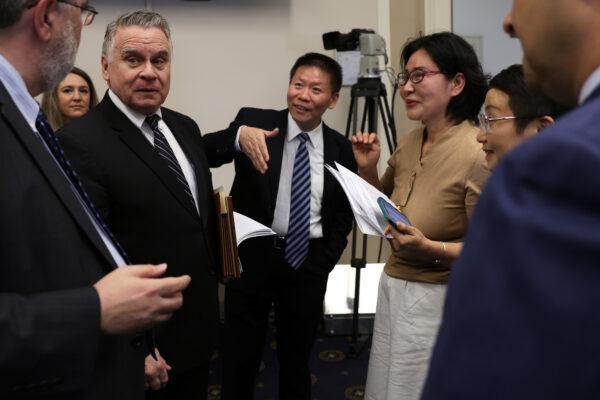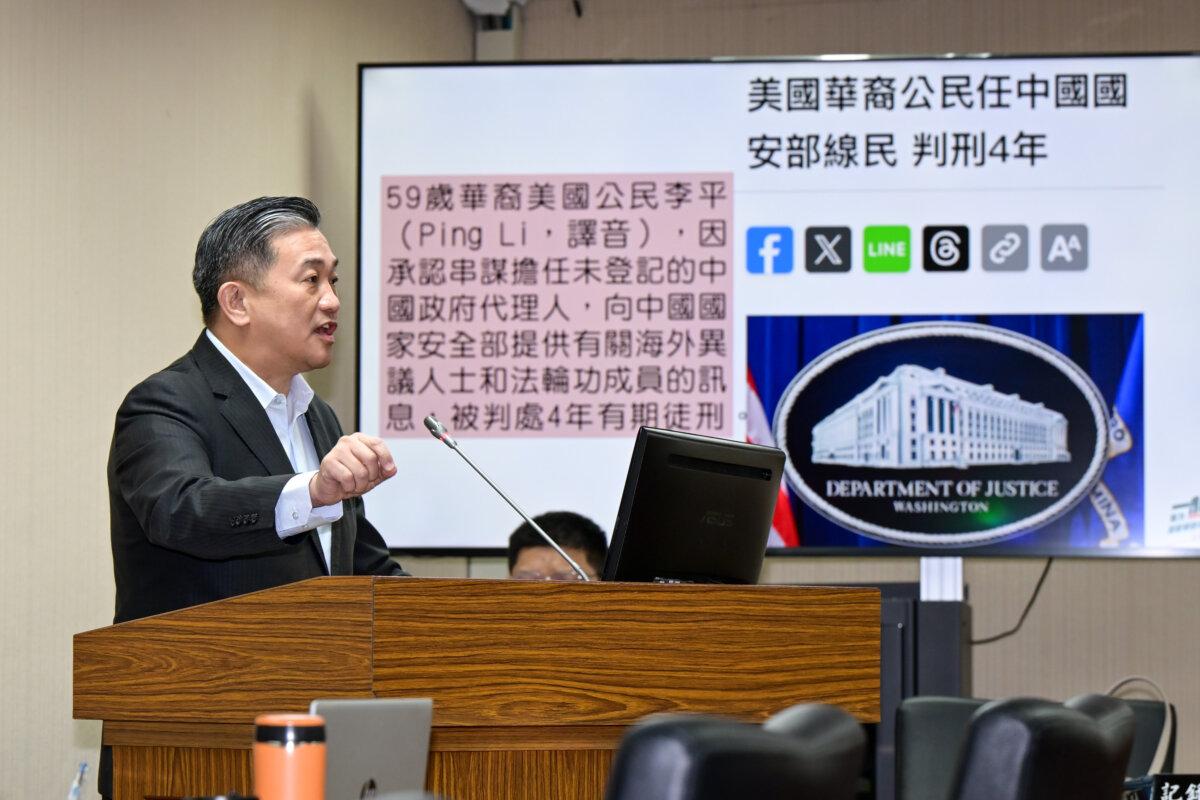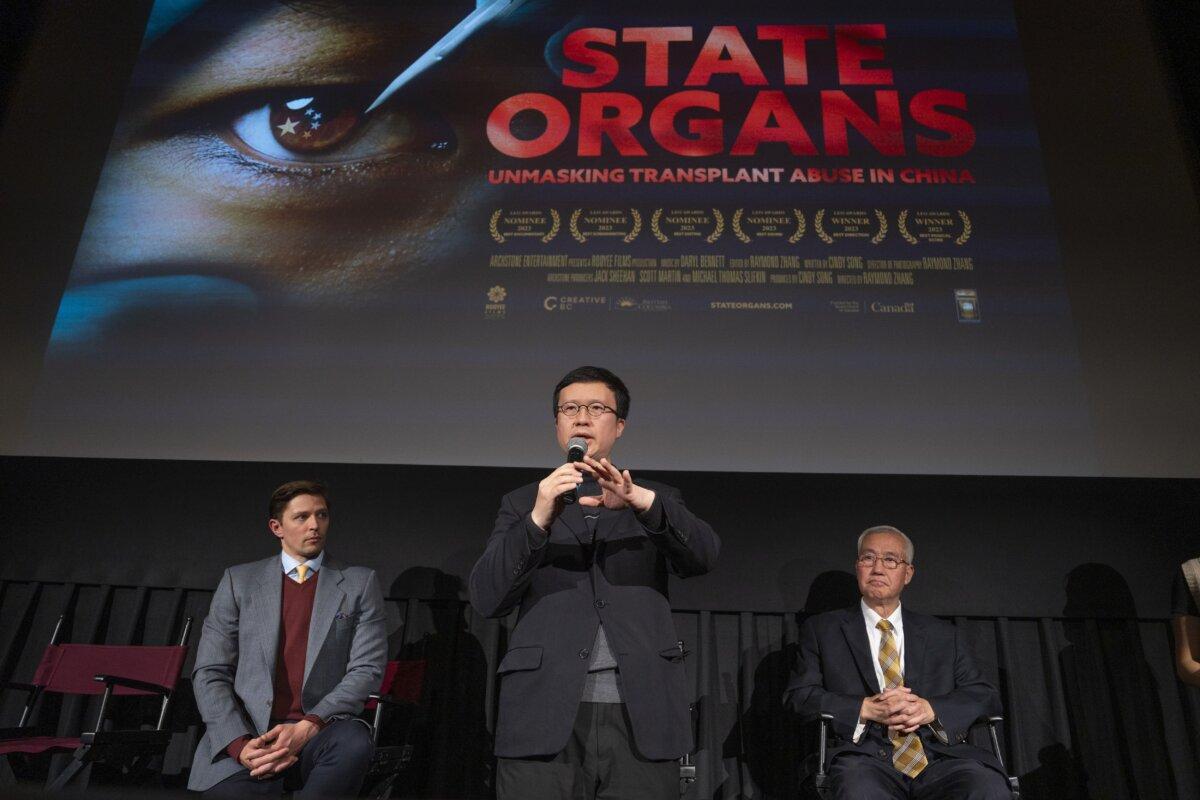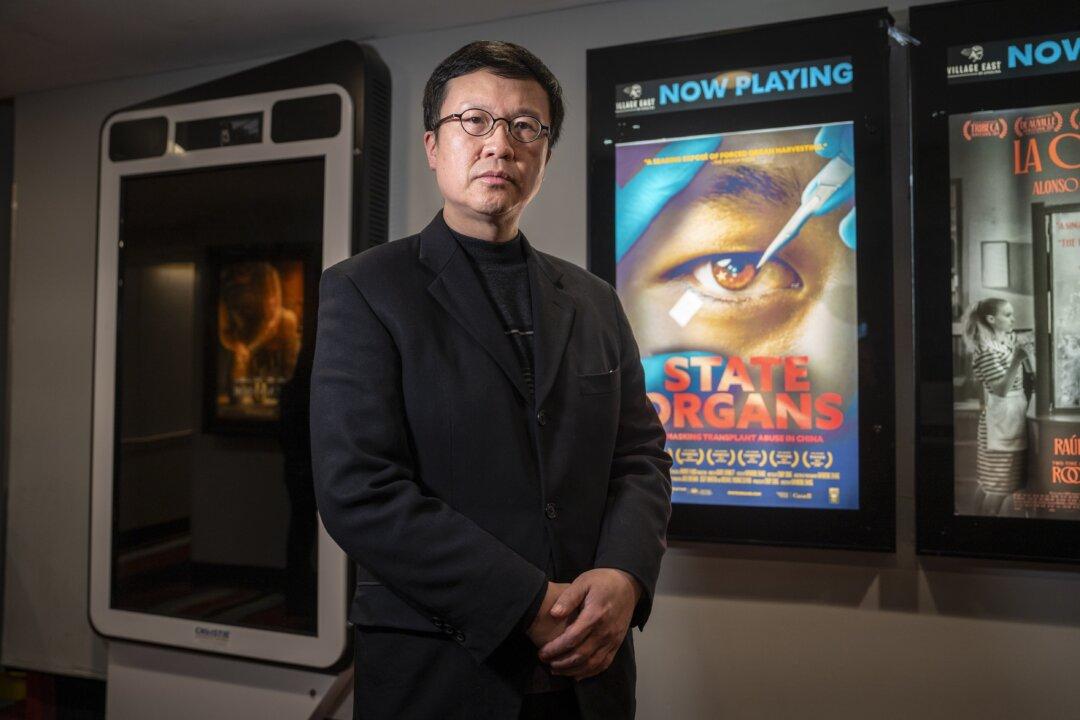Threats of mass shootings. Bomb detonations. Systematic hacking.
At a rate of roughly one every two days over the past two months, threats in Chinese have been directed to the inboxes of journalists, theaters, the police, and local lawmakers, mostly based in the United States and Taiwan. The threats have one goal: to stop the screening of a film called “State Organs.”
“State Organs” has screened in 15 Taiwanese cities since October as well as in San Francisco, New York City, and Japan.
“You better think before you act,” one email shared with The Epoch Times read. The sender claimed to have obtained the personal information of staff members at four theaters in Taiwan. The theaters had scheduled viewings of “State Organs” and received threats that their staff’s information would be released if the screenings went ahead.
At least two emails came with images of guns attached, with warnings that shots would be fired at audience members if the theaters didn’t cancel screenings of the film. Yet another email, this time directed at a reporter, claimed to have implanted explosives in her company’s headquarters in Taipei that would be set off unless she deleted a report on the film.
Ahead of a Nov. 30 screening hosted at Taipei’s city council building, another message threatened possible knife attacks.
All of these, it turned out, were empty threats. Taiwan’s Criminal Investigation Bureau has opened an investigation and increased security at the events. They’ve found no evidence of explosives or other public safety risks. The pattern, the police said, typifies the cyber-harassment campaigns originating from mainland China.
To director Raymond Zhang, whose name was directly mentioned in one harassment email, it feels like certain elements of the film are playing out in real life.
“Coverup, threats, and intimidation ... this is how Chinese authorities treated the victims’ families,“ he told The Epoch Times. ”And they are now doing the exact same thing outside of China.”
The film production team said it plans to collect all the threats and submit them to U.S. law enforcement.
Forced organ harvesting is a topic heavily censored by the Chinese Communist Party (CCP), along with a closely related topic, the persecution of Falun Gong. Both of the missing people featured in the documentary practice Falun Gong, a meditation practice with a focus on the values of truthfulness, compassion, and tolerance. Up to an estimated 100 million Chinese, or almost one in 12 people, took up the self-improvement discipline before the CCP launched its nationwide suppression campaign against the practice in 1999.
The issue “hits a sore spot for the CCP,” Zhang said. “It’s afraid to let the world know about this genocidal crime, and it’s been doing all it can to cover up this crime over the past 25 years.”

Rights, or Market Access?
Releasing “State Organs” hasn’t been a smooth ride.An Italian film distributor who initially expressed interest in bringing the film to Italian audiences in October 2023 did a 180 the next day. The representative offered “deepest compliments” to the film’s content and pacing, but conceded that works on the persecution of Falun Gong “have always been pushed away by Italian broadcasters.”
The roadblocks and threats haven’t discouraged Zhang. And if the harassment efforts are doing anything, he noted, it’s not in the way that Beijing might wish.
In Los Angeles, the acts of intimidation and threats of violence brought together a group of democracy activists, who staged a protest on the Hollywood Walk of Fame.
“Except for the CCP, no other regime in this world will make it a business to kill people for their organs,” the organizer said in a speech.
Weeks earlier in Middletown, New York, a local theater had to add temporary seating and then another viewing room to accommodate the crowd, Zhang said. At New York City’s Cinema Village, where the film was scheduled to screen for a week, the theater extended the run to two weeks.

In Taiwan, where the bulk of the harassment campaign was concentrated this season, the screenings sold out and legislators attended to lend support, emphasizing that their attendance was an act of defending freedom. The scheduled month of screenings of “State Organs” has since been extended into December.
Taiwan’s Foreign and National Defense Committee found the issue disturbing enough to convene a hearing on it and asked the island’s top officials how they planned to respond to the regime’s attempts to interfere.
While it’s a matter of individual choice whether one wants to watch the film or not, it’s a national security issue if the CCP can “deprive ‘State Organs’ the freedom to have screenings in Taiwan,” Wang Ting-yu, chairman of the committee, told The Epoch Times. If the CCP can do this today to one movie, he said, in the future, it will do the same to threaten democratic elections and other activities.
Zhang said he bears no ill will toward the people who are trying to intimidate him and the public. Perhaps, he suggests, some of them are also acting under the regime’s coercion or have become too blinded by the regime’s narratives. He hopes they can find a way to watch the film and decide for themselves how to view the issues addressed.

Growing international attention is coalescing around the need to address the substantial reports about crimes of forced organ harvesting by the CCP.
The bill is still waiting for a Senate vote.
Zhang said that his film is meant to make people think, and hopefully, act.
“After WWII, people said, ‘Never again,’” he said. “But it’s now happening.
“We now have an opportunity to change history in action.”







